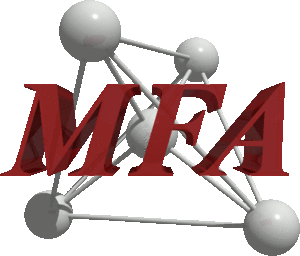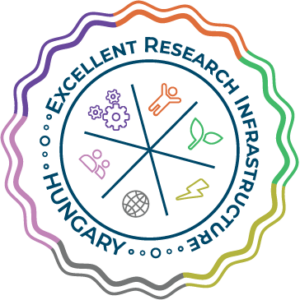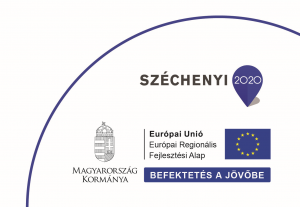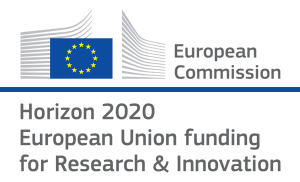Mission of the Institute:
The main tasks of the Centre for Energy Research Institute of Technical Physics and Materials Science (EK MFA) did not change in the last few years: research on nanometer scale functional materials exploring their physical, chemical and biological properties, as well as the exploitation of these properties in the development of integrated nano/microsystems, sensors, and non-destructive characterisation techniques.
Important task of the institute is the technical support of the SMEs and the university education, the utilisation of the research infrastructure for serving the needs of graduate and postgraduate education (TDK, BSc, MSc, and PhD) in the scheme of an open access laboratory.
- The main activity of the Nanostructures Department is the research of two-dimensional (2D) materials. Their research activity covers the synthesis of 2D materials with various techniques, their atomic-scale characterization and modification, as well as exploring their electronic and optical properties. Beyond the investigation of graphene on-going for more than ten years, the focus of attention shifted towards the research of 2D transition metal chalcogenides and topological insulators. The Department is also active in the investigations of biological and bioinspired photonic nanostructures.
- The research fields of the Thin Film Physics Department are: the development of various thin films and coatings, evaluation of modern 2D semiconductor layers and heterostructures; development of technical ceramics and bioceramics, evolution and study of a new layered Si3N4 / graphene composites and nanostructured calcium phosphates; furthermore implementation of transmission electron microscopy (TEM) sample preparation, methodological and assay methods.
- The mission of the Nanosensors Laboratory is to utilize the emerging results of nanotechnology and materials science for novel physical sensors, particularly for micro- and nanometer sized electromechanical systems (MEMS/NEMS). The research activities includes the exploration of piezoelectric thin films, development of semiconductor based sensors and low-power consumption or even autonomous sensor networks.
- The Microsystems Laboratory is intended to develop, fabrication and integration of micro and nanosystems, sensor structures whom application can open new perspectives in the field of medical diagnostics, Minimal Invasive Surgery techniques, energy efficient autonomous systems (sensor arrays, autonomous driving). Besides these topics the research activities extended to the directions of optical applications (spectroscopy), environment monitoring (water analysis) and security (gas sensing).
- The Photonics Department develops unique methods and tools for non-destructive optical and magnetic measurement of surface nanostructures and materials (spectroscopy; magnetic material testing; biosensors; surface curvature measurement; surface testing; water contamination).
- The Nanobiosensorics Research Group focuses on the development and application of label-free optical biosensors and combines these technologies with single cell manipulation techniques. Their research topics are ranging from the kinetics of cellular adhesion, migration and signalling on novel biomimetic interfaces to the mathematical modelling of the measured biological signals
- The traditional research field of the small sized group is the statistical physical analysis of equilibrium and non-equilibrium systems which they have recently begun to extend to include research and development in learning algorithms.
The aberration corrected electron microscope (THEMIS) was classified as part of the NKFIH TOP50+ excellent domestic research infrastructure https://www.mfa.kfki.hu/kutatas/projektek/vekop-themis/
Our supporters
Keep in touch:
Address: 1121 Budapest Konkoly-Thege M. út 29-33.
Post address: 1525 Budapest P.O.Box. 49.
Phone: +36 1 3922224
E-mail: info @ mfa.kfki.hu






